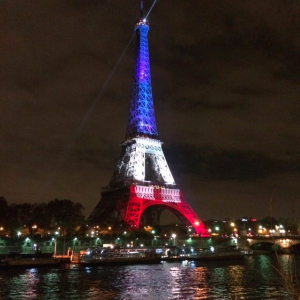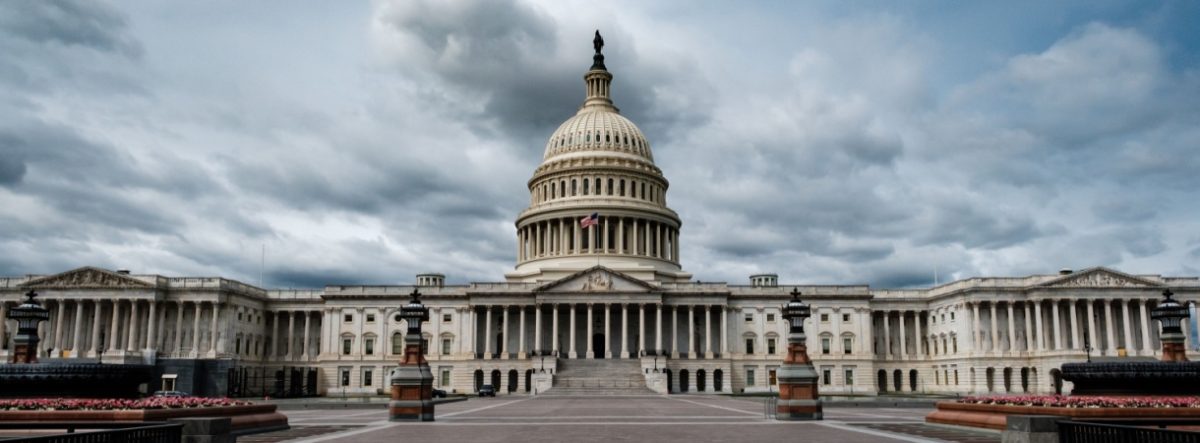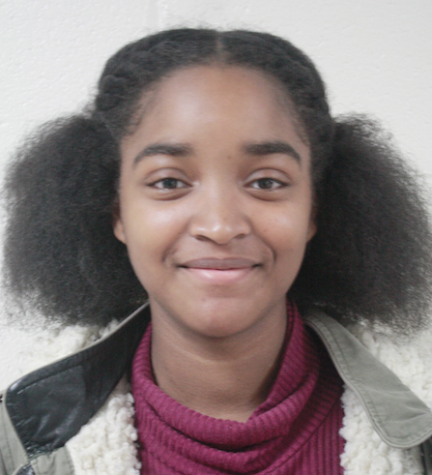DHS reacts to Paris attacks

The Eiffel Tower glows France’s flag colors to show unity after the Nov. 13 attacks in Paris.
November 20, 2015
The City of Lights saw a grim night last Friday when multiple terrorist attacks carried out by extremist group ISIS, caused the deaths of 129 people.
France has been victim to extremism a handful of times this year, including the shooting at the satirical magazine, Charlie Hebdo, in January.
The events of that night have been considered the worst attack on France since World War II.
French teacher Aline Dennison, who has taught at DHS for 23 years, moved to America from Paris when she was just 7 years old and makes frequent trips back to her birthplace.
Dennison said, “When I heard the news, my first reaction was if my family was safe, that all Parisiens were safe, and that where I was born was not destroyed.”
Currently, 57 people are in intensive care, with a further 220 recovering from other serious injuries in hospitals.
These attacks took place just two weeks after the ISIS bombing of the Russian airliner that killed 224 people.
Chris Fay, the school’s Multicultural Issues teacher, said that “we have to find a way to eliminate that hate in this world.”
The tragedy that happened in Paris struck fear for many, not just the people who were witnesses, or who were affected first-hand, but for us right here at DHS.
“It’s very scary and unnecessary….it’s good that President Obama is bringing in Syrian refugees, but that could also open up opportunities for attack,” said junior Heidy Coronel.
Madison Roynon, also a junior, said, “It’s actually really scary because it can happen anywhere at anytime.”
Michelle Passarelli, Contemporary Issues teacher, said, “It was very sad and I think Americans are really upset now because it’s closer to home.”
But how can we as a country actually help France in this time of need?
Jessica Ferreira, junior, says that, “We can’t help them to get over their grief and to find closure, but we can help them financially.”
Tina Keo, a junior, said, “We should show support to France and help people who suffered from it by raising money to help people who were injured”.
Fay states, “I’m hoping the world unites and really comes together to find an answer, and to do the best they can to get rid of these hate groups in general.”
However, Dennison posed another problem in France that could dampen hopes of unification: Muslims are being isolated and stereotyped and face hostility from French nationals.
“In Paris, there is a definite sense of segregation,” she said. “France needs to create an atmosphere of solidarity among people. They need to convince foreigners that they are French, too, even though you are not born in France, you live here and you’re part of France.”
Passarelli said, “There is even a law in France which states that women are not allowed to wear hijabs in public. There’s a really large Muslim population, but there’s also a divide and a lot of bigotry.”
That is why Passarelli stresses that learning about other cultures is important, and believes that Multicultural Issues should be a mandatory class in school.
“If people knew more about the faith they would know that not all Muslims follow ISIS’ ideas,” she said.



















